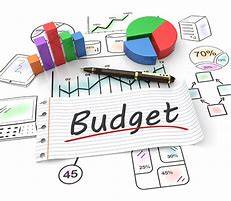In today’s fast-paced world, managing finances can be a
challenge for many. However, one of the most powerful tools in personal finance
is budgeting. A budget helps you take control of your money, ensuring that
every dollar is accounted for. Whether you're trying to save for a big
purchase, reduce debt, or simply manage daily expenses, budgeting offers a
structured way to achieve your financial goals. But where do you start, and how
do you stay committed? Let’s explore the importance of budgeting and how to
create one that works for you.
Why Budgeting is Important
Budgeting is the foundation of financial stability. Without
a budget, it’s easy to lose track of where your money goes each month. You may find
yourself spending more than you earn, leading to debt and financial stress. A
well-planned budget gives you a clear picture of your income and expenses.
helping you make informed decisions. It also promotes savings and ensures you can
cover essentials like rent and utilities, and allows room for personal spending
without guilt.
Moreover, budgeting helps prepare for unexpected financial
challenges, such as medical emergencies or sudden car repairs. When you have a
budget in place, you can build an emergency fund and avoid relying on credit
cards or loans in a crisis.
How to Start a Budget
Starting a budget may seem intimidating, but it’s easier than you think. Here’s a simple step-by-step guide:
1. Track Your Income and Expenses: Begin by listing all sources of income and then track every expense. This includes fixed expenses like rent and utilities, as well as variable costs such as groceries, entertainment, and dining out.
2. Set Financial Goals: Identify short-term and long-term financial goals. Whether it’s paying off debt, saving for a vacation, or Building an emergency fund and having goals helps you stay motivated.
Tips for Sticking to
Your Budget
1. Review Your Budget Regularly: Life changes, and so should
your budget. Regularly review and adjust your budget to ensure it aligns with
your current financial situation.
2. Use Budgeting Tools: Take advantage of apps like Mint or YNAB (You Need A Budget) to help track expenses, set goals, and monitor your progress.
Budgeting is a vital step toward financial
freedom. By understanding where your money goes and making conscious spending
choices, you can reduce financial stress and reach your goals. Start small,
Stay consistent and enjoy the peace of mind that comes with financial control.




No comments yet
Be the first to share your thoughts!